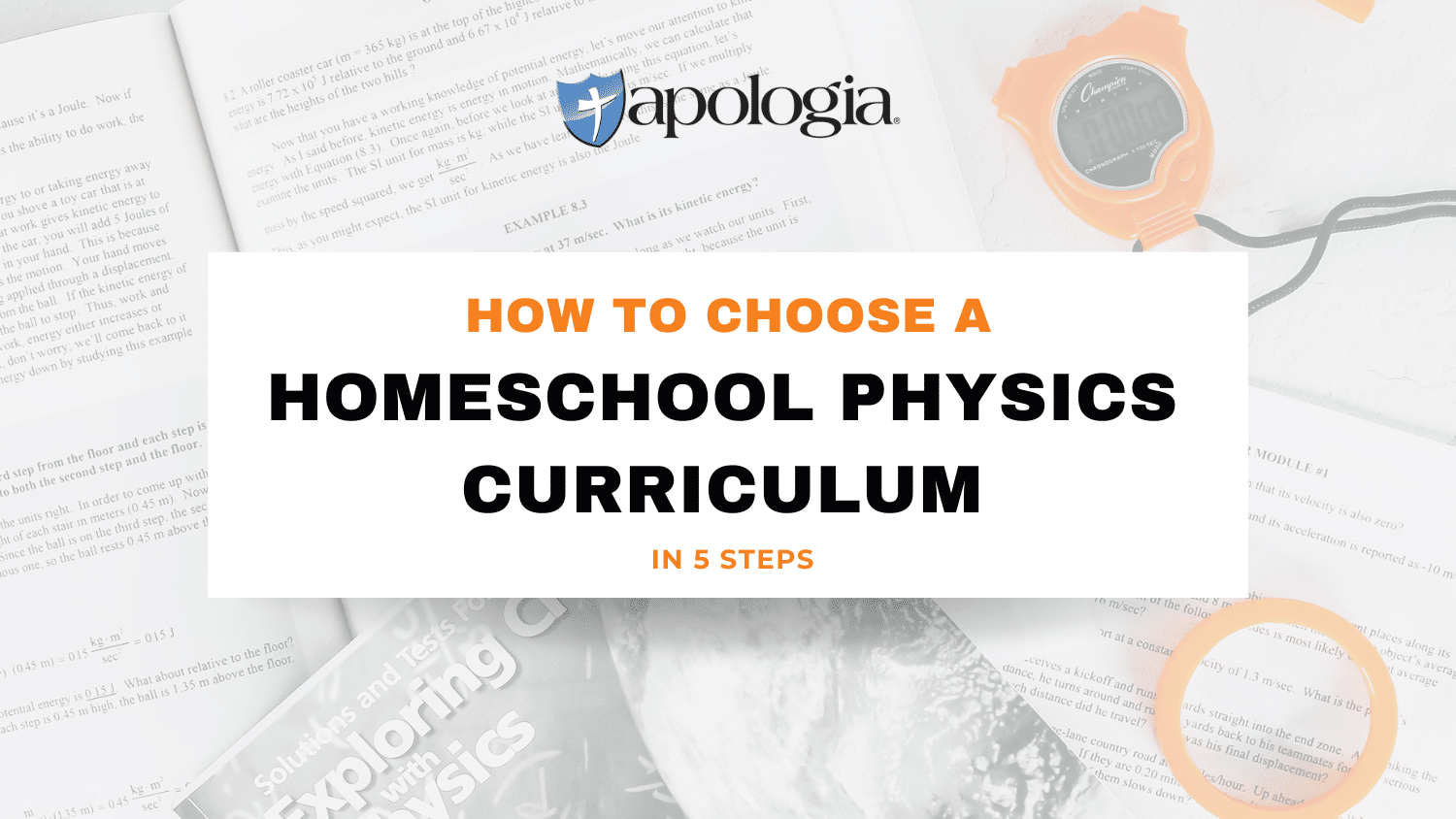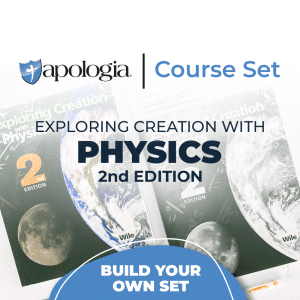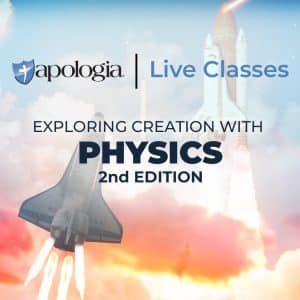
How to Choose a Homeschool Physics Curriculum – In 5 Steps
Finding the right homeschool physics curriculum is a big step in preparing your student for college science. Physics can feel intimidating, but with the right tools, it becomes an engaging and rewarding subject that builds problem-solving skills and opens doors to future opportunities.
At Apologia, we’ve designed our homeschool physics curriculum to give families everything they need to teach with confidence, whether your student is college-bound or simply building a solid foundation.
Why Physics Matters for Homeschoolers
Physics isn’t just about solving equations—it’s about understanding the principles that shape the world around us. For homeschooled students, studying physics helps to:
- Develop critical thinking and logical reasoning
- Strengthen math application skills, especially in algebra and trigonometry
- Gain hands-on experience through experiments and labs
- Build a strong transcript for college admissions
A well-structured homeschool physics curriculum equips students for both academic success and everyday problem-solving.
Step 1: Define Your Goals
When choosing a physics program, it helps to clarify your objectives. Ask questions like:
- Do you need a full high school science and lab credit?
- Is your student preparing for college-level STEM courses?
- Is your student preparing for a career where physics will be used daily?
- Do you want your student’s physics education to be taught from a Biblical worldview?
Apologia’s physics curriculum is designed as a rigorous homeschool high school physics curriculum and to prepare students for college-level STEM studies, while grounding their learning in a biblical worldview. Apologia offers:
- Clear, student-friendly textbooks that explain concepts step by step
- Tests and Solutions Manuals to help make grading and support easy
- Optional video lessons and online tools for extra guidance
- Built-in lab work and experiments to connect theory with practice
Step 2: Choose a Format That Fits Your Family
Every homeschooling family has a different rhythm and each student has a unique learning style. Flexibility is key. Apologia offers:
This variety allows students to work independently while giving parents the support they need.
Watch this introduction to our Live Class to learn more:
Step 3: Prioritize Hands-On Learning
Physics comes to life when students can see concepts in action. That’s why our curriculum emphasizes labs and experiments. With Apologia Physics, your student will:
- Conduct experiments using accessible materials
- Gain confidence through hands-on exploration
- Practice writing detailed lab reports
Lab experience is not only engaging— it’s also an important part of earning a credible high school science credit.
Step 4: Ensure Readiness
Physics requires a solid foundation in math. Before starting, make sure your student is comfortable with algebra and has some exposure to trigonometry. Apologia provides guidance so you know your student is ready to succeed before beginning the course.
Step 5: Support Long-Term Retention
A strong homeschool physics curriculum isn’t just about passing tests, it’s about preparing your student for the future. Apologia’s program helps students:
- Build academic discipline through structured lessons
- Strengthen problem-solving skills useful in any field
- Prepare for higher education and real-world applications
Read more: Post Elementary Homeschooling: Can I Teach My Sixth Grader?
Tips for Success with Apologia Physics
- Stay consistent: Schedule lessons and labs regularly for steady progress.
- Use available resources: Teacher’s solutions manual and Live Class options reduce stress for parents.
- Encourage exploration: Show your student how physics relates to everyday life—sports, technology, or even music.
- Stay organized: Keep track of labs, assignments, and assessments for your high school transcript.
FAQs About Apologia’s Homeschool Physics Curriculum
What grade level is Apologia Physics designed for?
Typically 11th or 12th grade, once students are confident in algebra and trigonometry.
Does this count as a full high school credit?
Yes. Apologia Physics includes both coursework and labs for a complete high school science credit.
How are labs managed at home?
Experiments are designed to use household or easily sourced materials, with clear instructions and support for writing lab reports.
Can my student work independently?
Yes. The course is structured for independent learning, with resources to support parents if needed.
Read more: How to teach physical science at home – a comprehensive guide
Final Thoughts
Choosing a homeschool physics curriculum doesn’t need to be complicated. By focusing on clear goals, flexible teaching formats, and hands-on learning, you can give your student both academic rigor and practical experience.
With Apologia Physics, you’ll have a program that is thorough, approachable, and designed to help your student thrive in one of high school’s most important science courses. Learn more by checking out our live class options here.





